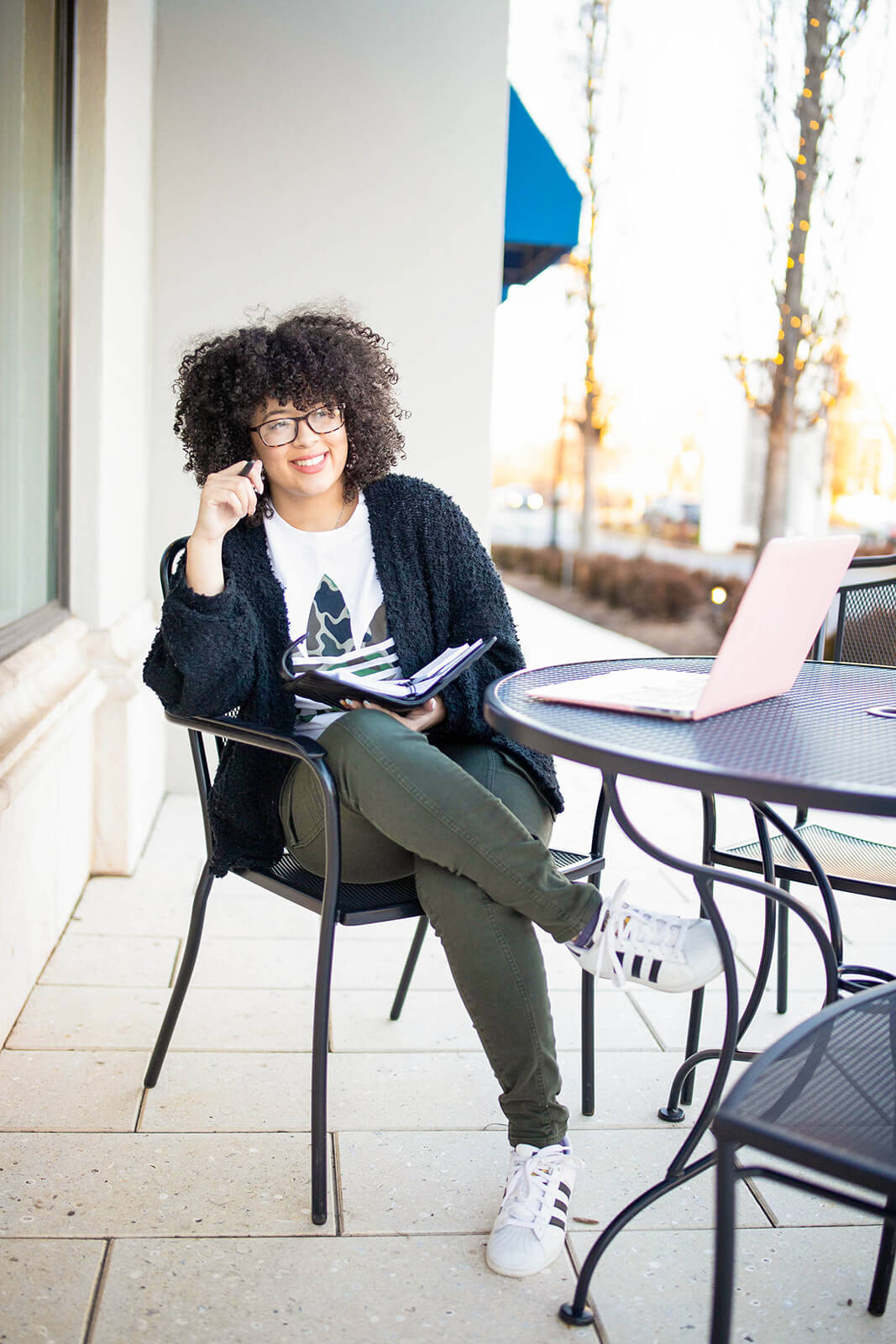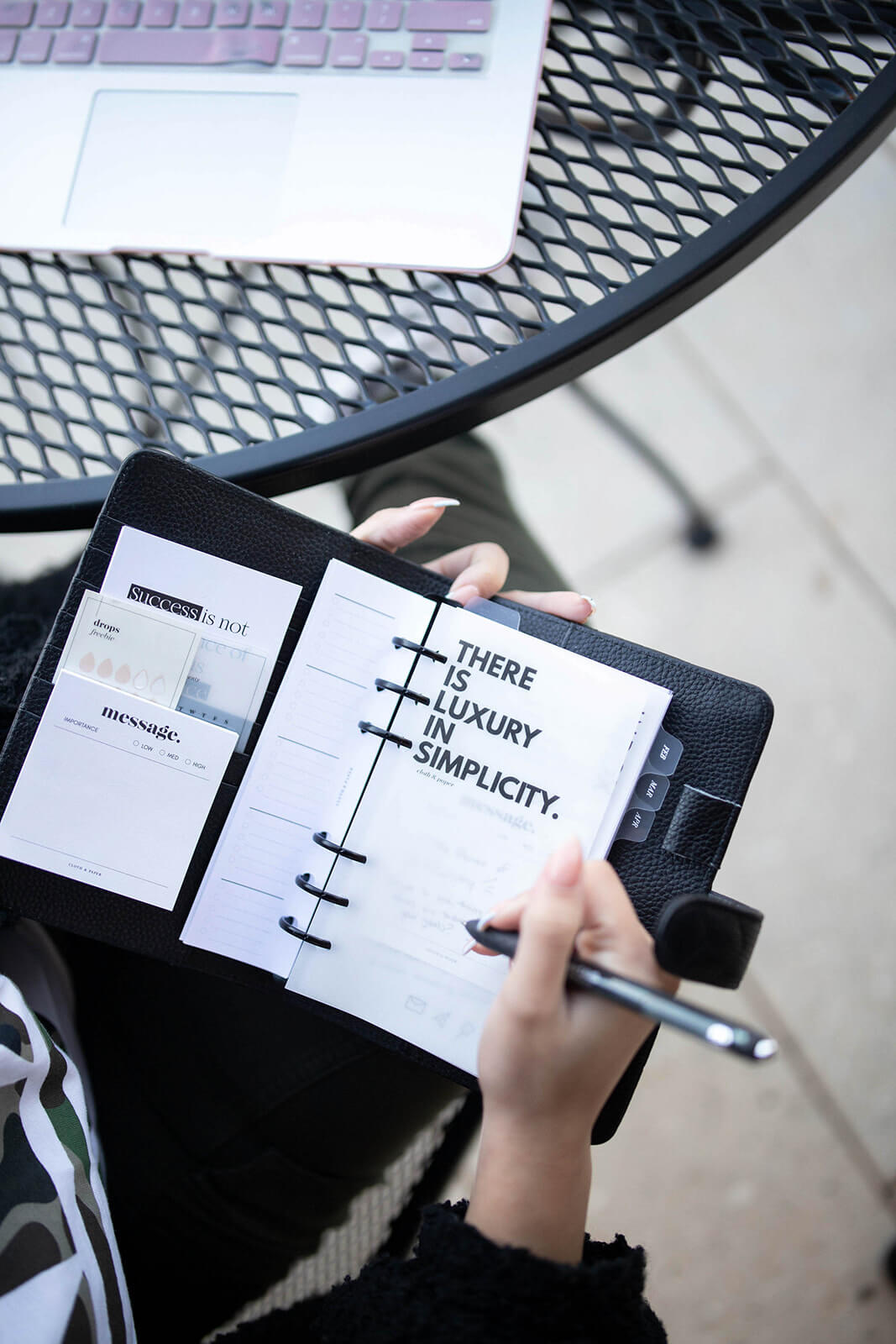Guys, I’m really excited about this week’s blog post because we’re going to be talking money, money, money, basically my favorite topic! This week, we’re going to chat about emergency funds, including why you need one, how much you should save (mhmm a specific emergency fund amount), and tips on how to get started even if you’re living paycheck to paycheck. I know, especially as a new college grad, building an emergency fund savings can feel like a daunting task, but I promise you’ll thank me later once you get started. If there is anything that 2020 has taught us is that nothing is guaranteed (including your job) and it’s better to be safe than sorry. So if you’re ready to start investing in your future, then let’s dive right on in!
What is an emergency fund?
An emergency fund is exactly what it sounds like: it is money set aside for any larger expenses that come up unexpectedly throughout the year. This could be something such as losing your job, having to make major repairs on your car unexpectedly, or having to replace your roof after a crazy storm. In these instances, it’s totally appropriate to dip into your emergency fund so that you’re not putting that expense on a credit card or loan.
Why you need an emergency fund
Life is so unpredictable, and emergencies will come up where you have to spend a chunk of change that you weren’t expecting. As we all saw in 2020, a ton of people lost their jobs or jobs went on hiring freezes. People were having emergencies left and right, which is why it is so important to have an emergency fund.
Another big reason why it’s a good idea to have an emergency fund is that if you’re already in debt (I’m talking about those student loans, mortgages, or brand new car you bought after graduation), it is very easy to stay in debt. What I mean by this is that if an emergency comes up, it can cause you to skip a debt payment one month. Then next month, another emergency comes up and it can snowball from there. The amazing thing about an emergency fund is that it acts a buffer to keep you on track with your financial goals.
How much should you have in your emergency fund savings?
Most people are going to say you should save 3-6 months of expenses, but I’m going to say that it really depends on the type of job you have (+/- what job your partner has), any side hustles you have, and your current financial situation. If you’re just getting started or maybe you don’t have a lot of extra money to save, then start out with $1,000. It’s a small enough goal that once you hit it, you’re going to feel so good about yourself that you’re going to want to keep going.
After you hit the $1,000 emergency fund amount, then you can shoot for more lofty goals such as having 3 months’ worth of expenses or even a year’s worth of expenses. Another great tip that I’ve learned is that if you have a stable employment (you know one that isn’t affected by pandemics or recessions), then you should shoot for 3-6 months of expenses for your emergency fund. What I mean by stable employment is any job that we saw were still in high demand when COVID hit, such as any healthcare job, government jobs, and any job essential for everyday living.
Now if you’re kinda in that camp but there’s a good chance that your job could be scaled back, outsourced, or computerized, then you should shoot for 6-9 months of expenses in your emergency fund. For those that have jobs that are seasonal or considered unstable employment, you’re going to want to save up at least 9 months if not longer for your emergency fund. This would include anyone that waits tables, is self-employed, and the like.
The best way to figure out what your 3,6, or 12 months’ worth of expenses looks like for you. You’ll want to take a look and see what your monthly expenses are. Then times that by the number of months you want to save. You can also look at your annual spending if you have that readily available to figure out this number.
If you’re not really sure how much you should save, I say go big or go home. Shoot for the stars and shot for a goal that scares you. Maybe that’s 10k or 20k or even more!
Where should you put your emergency fund?
Your emergency fund savings should be put in a separate account away from your account where you pull for your regular, daily expenses. Keep it separated from your savings/checking account. This way you’re less likely to spend it on something non-emergency related when it’s not in your view 24/7.
If you’re trying to figure out where to park your emergency fund, then I would recommend putting the money in a high-yield savings account that has a digital bank for easy access. You won’t get rich off the interest, but if the money has to sit somewhere, it can least make you a few dollars in the process.
Tips on building up your emergency fund savings
Now that you know what an emergency fund is and how much you should save for your current financial situation, now it’s time to actually make a savings plan. I promise that saving up for an emergency fund is not as daunting as it seems. It’s actually quite easy once you get started. You can even make it into a game if you have a friend or partner who is also interested in building up their emergency fund.
1. Set a monthly savings goal that is realistic for your budget
No amount is too small to add to your emergency fund savings. Whatever amount you feel comfortable saving from your paycheck, go ahead and automatic your savings into your emergency fund. This way you don’t even have to think about saving. If you need help with this, I highly recommend downloading the app called Qapital. It’s a finance app that helps you save money without you even realizing it. I used this a ton when I was in college and even had $2,000 saved at one point just by using the app.
2. Got a little extra money? Add that in too
I know you got that little stimmy check (it’s a joke from Twitter) at the beginning of the year. If you don’t need the extra money to pay off any necessary bills or expenses right now, then add it to your emergency fund for later. Same goes for your tax refund check, any money you got for the holidays, or etc.
3. Cut out ONE unnecessary expense
I’m not saying go crazy and cut out all unnecessary spending. But without going overboard, take something that you do regularly and cut it out for a certain time frame. Maybe you enjoy going to Starbucks in the morning before work three times a week. Or maybe you cut down your shopping budget for the month or cook more meals at home, instead of eating out. It’s honestly the small repeated expenses that can add up over the year that can really help boost your emergency fund.
4. Start a side hustle or sell your old clothes online
Highly recommend if you’re looking to make a little bit of extra money to put towards your emergency fund, then you should definitely start a side hustle. Some of the ways that I’ve made some extra cash over the years is by selling my old clothes on Poshmark, dogsiting and dogwalking on the Rover app, and through my blogging business. Titi has even made quite bit of cash by DoorDashing (or basically as a food delivery man). Do you have a skill or hobby that you could monetize this year to help you grow your funds?
5. Reward yourself with something small at the end of the challenge
Once you’ve hit your emergency fund goal, reward yourself with something small, but reasonable to celebrate your win. It takes some dedication and persistence to reach a financial goal. Be proud of yourself and celebrate your accomplishment! But don’t get lazy. Once you’ve hit the first goal, go ahead and start on the next one.
You may also like: How to Manage Your Credit After Graduation, The Hidden Secrets of Selling on Poshmark, and the Hidden Secrets of Dogsitting on Rover








